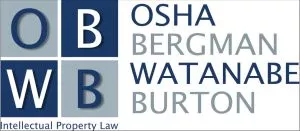- within Intellectual Property topic(s)
- in United States
- within Antitrust/Competition Law topic(s)
- with readers working within the Retail & Leisure industries
In an effort to evaluate the impact of a limited claim set on
pendency and examination quality, the USPTO launched the
Streamlined Claim Set Pilot Program on October 27, 2025. Under the
pilot, eligible applications accepted into the pilot will be
advanced out of turn for examination until a first Office Action is
issued. The program will run until October 27, 2026, or until
each Technology Center dockets approximately 200 applications under
the pilot.
Eligible applications include original utility applications filed
before October 27, 2025 (i.e., filed before the launch of
the pilot). Continuing and national stage applications are not
eligible for participation. Of the original utility
applications already on file, eligible applications must not have
more than one independent claim, no more than ten total claims, and
no multiple dependent claims. Dependent claims shall refer to
a previous claim in the preamble, include every limitation of the
previous claim from which it depends, and specify a further
limitation of the subject matter of the previous claim. In
requiring the reference to the previous claim being in the
preamble, the claim must be directed to the same statutory class of
invention as the independent claim. That is, it would not be
possible to present a first independent claim to a composition and
also present an additional claim reciting a method of applying the
composition of claim 1 onto a surface, as this would present a
claim to a different statutory class. It also would not be
possible to present a first independent claim to a composition and
also present an additional claim reciting a formulation that
comprises the composition of claim 1 because the reference to claim
1 is not in the preamble. For applicants interested in the
pilot but who have a concern that their claims as filed do not meet
these requirements, applicants may amend their claims by way of a
preliminary amendment to bring the application into compliance with
the pilot eligibility requirements.
Compliance with the claim eligibility requirements is not the only consideration. The USPTO will generally dismiss a petition under the pilot program if the application has already been docketed to an examiner at the time the petition is reviewed. Because the petition fee will not be refunded if an application is not accepted, applicants should review the status of the application in Patent Center to ensure it is not already assigned to an examiner. Unfortunately, if the application is assigned to an examiner between the petition filing and the time for decision on the petition, the petition still will not be accepted.
Upon acceptance of an application into the pilot, the application will be placed on the examiner's special docket until a first office action is issued, after which point the application will be entered into the examiner's regular docket. Thus, the pilot is distinct from the manner in which Track One prioritized applications and Petition to Make Special based on age or health of an inventor are handled in subsequent stages of the examination. If a restriction requirement is mailed (if applicant does not make an oral election), it will be treated as the first office action under this pilot.
While there are limitations on the number and type of claims in applications accepted under the program, the petition fee for participation, $150 for regular entity (with 60% and 80% fee reductions for small and micro entity, respectively), is extremely low, particularly in comparison to the fees for prioritized examination (totaling $4665 for regular entity), and the pilot should result in a shortened pendency through the quicker issuance of a first office action. If additional claim scope is desired, it could be sought through a continuing application (albeit with the longer-term cost associated with the second application including maintenance of two patents). However, for many applicants, especially start-ups, obtaining a quicker issuance could be extremely helpful, particularly to attract investments or secure market exclusivity.
The content of this article is intended to provide a general guide to the subject matter. Specialist advice should be sought about your specific circumstances.
[View Source]

